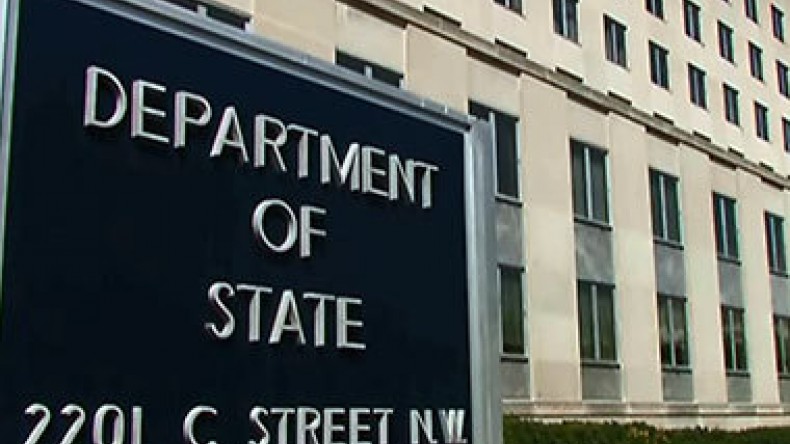
US Department of State: Discrimination against women, children, believers and sexual minorities in Azerbaijan
The US Secretary of State John Kerry introduced the Country Reports on Human Rights Practices for 2014 where the Department of State analyses the human rights situation in different spheres in Azerbaijan, among others. The report is published on the US Department of State website.
According to the report, in the first 11 months of 2014, the Ministry of Internal Affairs reported 34 cases of rape, 45 cases of violence of a sexual nature, and six cases of forced sexual acts. On June 18, 2014, the UN special rapporteur Rashida Manjoo stated that violence against women, including domestic violence and killings, remained widespread. As of December 2014, the gender ratio of children born in the country was 116 boys for every 100 girls because of gender-biased sex selection.
The Department of State points that some poor families forced their children to work or beg rather than attend school. In the UNESCO Education for All Global Monitoring Report, Azerbaijan fell either “very far from target” or “far from target” in preprimary, primary, and lower-secondary education enrollment projections for 2015.
In the first 11 months of 2014, the Ministry of Internal Affairs reported five cases of rape involving underage victims, 25 cases of minors subjected to sexual acts, two cases of forced sexual acts, and one case of sexual intercourse with a person under age 16. NGOs reported that the number of early marriages continued to increase. A Baku NGO working with street children reported that boys and girls at times engaged in prostitution and street begging, according to the report.
The law prohibits discrimination against persons with physical, sensory, intellectual, and mental disabilities in employment, education, air travel and other transportation, access to health care, or the provision of other state services, but the Azerbaijani government did not enforce these provisions effectively. Employment discrimination remained a problem. Employers generally hesitated to hire persons with disabilities. A common belief persisted that children with disabilities were ill and needed to be separated from other children and institutionalized. A local NGO reported there were approximately 60,000 children with disabilities in the country.
Societal intolerance, violence, and discrimination based on sexual orientation and gender identity remained a problem. A local NGO reported that there were numerous incidents of police brutality against individuals based on sexual orientation and noted that authorities did not investigate or punish those responsible. In addition, specific police stations were known to extort money from LGBT individuals in return for not disclosing their orientation or identity. LGBT individuals continued to refuse to file formal complaints with law enforcement bodies. According to the report, in a 2006 survey, 79.9 percent of women and 92 percent of men reported discriminatory attitudes towards those with HIV.
There were media reports of groups of men publically attacking Salafi men and shaving their beards. For example, in a July 4, 2014, incident in the southern town of Sabirabad, Ramzi Zeynalov was filmed cutting Javanshir Zarbaliyev’s beard. Police later arrested Zeynalov for disorderly conduct after videos of the incident received wide attention, the Department of State notes.
Related:
US Department of State: Sexual abuse widespread in Azerbaijani army, tortures in prisons, foreigners’ communications monitored
Issues of early marriages, prostitution, abortions and violence against women in Azerbaijan discussed in UN
Azerbaijani Authorities use tolerance facade to camouflage serious human rights violations
Newsfeed
Videos






























